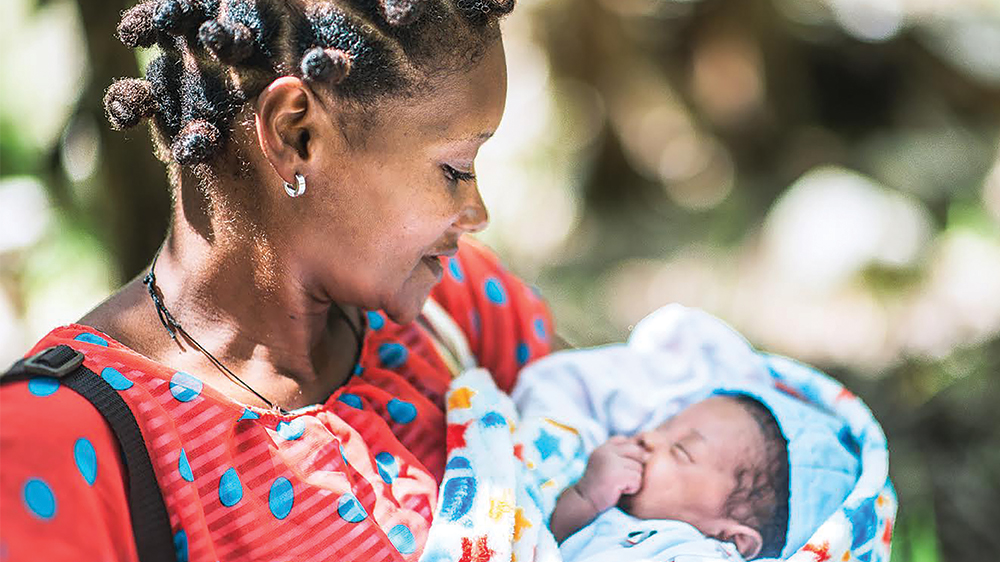Mimsi Gives Haiti Moms-to-Be the Medicine They Need
By Malina Saval
LOS ANGELES (Variety.com) – Growing up in New York, Dr. Winfred S. (Freddy) Tovar would listen to the stories that his mother relayed about pregnancy and childbirth in her native Haiti. They were crushing, tragic tales, about stillborn babies and family members dying during childbirth. Tovar’s mother, who immigrated to the States in the 1970s, nearly died during her first pregnancy. Devastating poverty, lack of infrastructure and frequent natural disasters such as Hurricane Matthew contribute to ’s infant and maternal death rates, the highest in the Western hemisphere, says Tovar, founder of Mimsi Intl., short for the Modification in Mother-Baby-Mortality Statistics Initiative.
In its rural areas, where 70% of the population lives, there is no access to medical care or hospitals or even prenatal vitamins, he says. There are no IV tubes, no ventilators, no electricity. The medical clinics that do exist are often infested with flies, the floors are just dirt and mud. And if you don’t have cash in hand, the doctors won’t treat you, even if you’re in active labor. It’s not uncommon for women to birth babies on dirt roads or in parking lots in Haiti, many babies dying after cracking their skulls on the pavement. In Haiti, every 20 minutes a woman dies during childbirth.
“That’s one in 83 women,” says Tovar, an ob-gyn who earned his medical degree from Johns Hopkins. “But these are just the numbers that are reported to the government. Many times a woman will become pregnant, and if she suffers a complication and dies, she’s buried in the backyard. There’s no death certificate. They may not even know the death was pregnancy-related, because these women don’t have access to pregnancy tests.”
In 2013, Tovar’s cousin Rose, who was 47 and still living in Haiti, developed preeclampsia, a dangerous condition marked by high blood pressure and damage to organs, and nearly bled to death giving birth to twins.
“She ended up delivering the twins, which is when I got a call from my mom, who was at the clinic,” says Tovar. “I can hear the blood hitting the ground. We got the bleeding to stop temporarily, and by the time she got to the hospital, she was in a coma. She stayed in a coma for three weeks. My mother and her cousins gathered around, and eventually I got a chance to fly down and help with her care.
“In was in that moment I was like, this has to end. Something has to change. I just couldn’t watch any more people die.”
In 2014, Tovar founded Mimsi Intl., which provides medical training and pregnancy care to women in rural Haiti. Local volunteers are trained in multiple areas, including how to administer pregnancy tests and ultrasounds and test for STDs.
“Two percent of the women Mimsi treats are HIV-positive, which is an epidemic,” says Tovar.
Since establishing its mobile prenatal clinic in 2015, Mimsi has provided free medical care to more than 4,700 pregnant women in 60 communities across rural Haiti. As a result, the organization has lowered the risk of death for pregnant women in Haiti from one in 83 to one in 1,300, a significant decrease.
“You save a woman’s life, but the next town over, there’s a woman that dies because we’re not there.”
Jon Rubinstein
“Without Mimsi showing up, they’re left to fend for themselves in their shack, in their hut,” says Jon Rubinstein, Mimsi board president. “We’re really making a difference, especially with those women who are dealing with the high-risk pregnancies.”
Rubinstein, founder and president of Authentic Talent and Literary Management, began traveling to Haiti several years ago, and fell in love with its landscape and people. Authentic prides itself as a company with an unwavering commitment to philanthropic causes, and when Rubinstein discovered Mimsi’s work, he was determined to help expand its impact. The next step, he says, is to fundraise and create a comprehensive medical center that would service tens of thousands of women and babies.
“You save a woman’s life but the next town over, there’s a woman who dies because we’re not there,” says Rubinstein. “When we create this clinic, the educational center, it’s going to alter the face of the region.”
Lisa Leote, director of education and board member, has been working with Mimsi since 2016, traveling to Haiti to train female volunteers and perform ultrasounds for patients in its mobile clinics.
“You cannot fathom the conditions until you are there — the lack of institutionalized systems, the lack of value of human life,” she says. “But what was even more amazing was that we had hundreds upon hundreds of patients every day. There were some days when we would get to clinic at 7 a.m. and we wouldn’t end until 11 p.m. You would just go the entire day.”
Thus far, 17 volunteers have graduated from Mimsi’s training program and are now working in the field. Not only are these women saving lives, but they are also contributing to the emotional well-being of their communities.
“With the programs what we have, we’re bringing power back to these women,” says Leote. “They’re able to have an education they probably wouldn’t have had.”
Ultimately, Mimsi’s goal is to expand beyond Haiti, to every country in the world where there’s a need to provide prenatal and pregnancy care.
“It’s gut-wrenching to recognize the realities of the lack of care,” says Tovar. “And while Haiti is my ancestral home, it’s bad. It’s bad in other places, too, like Malawi, Mozambique, Congo. There’s just a real disregard for what mothers bring to the world.”

